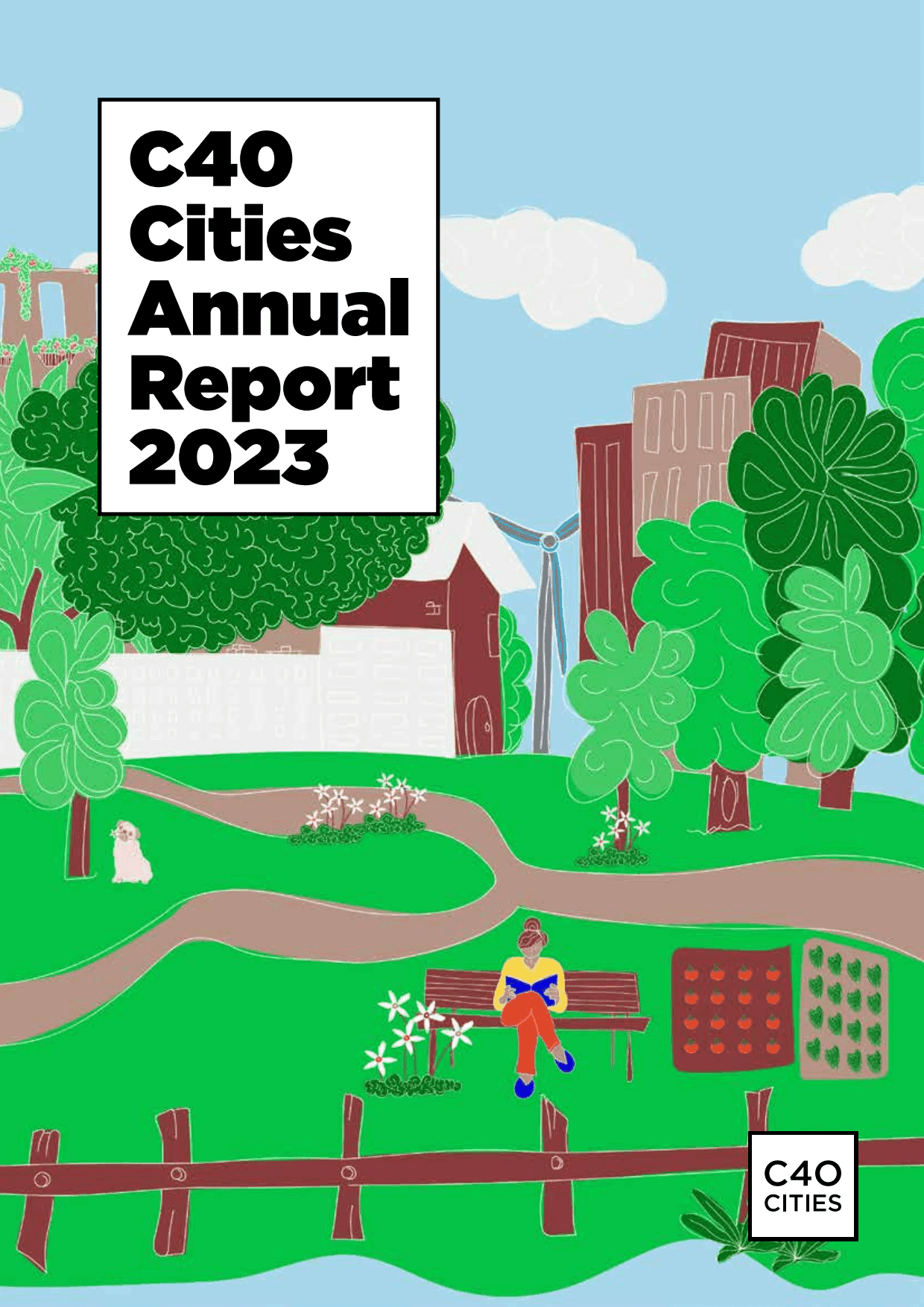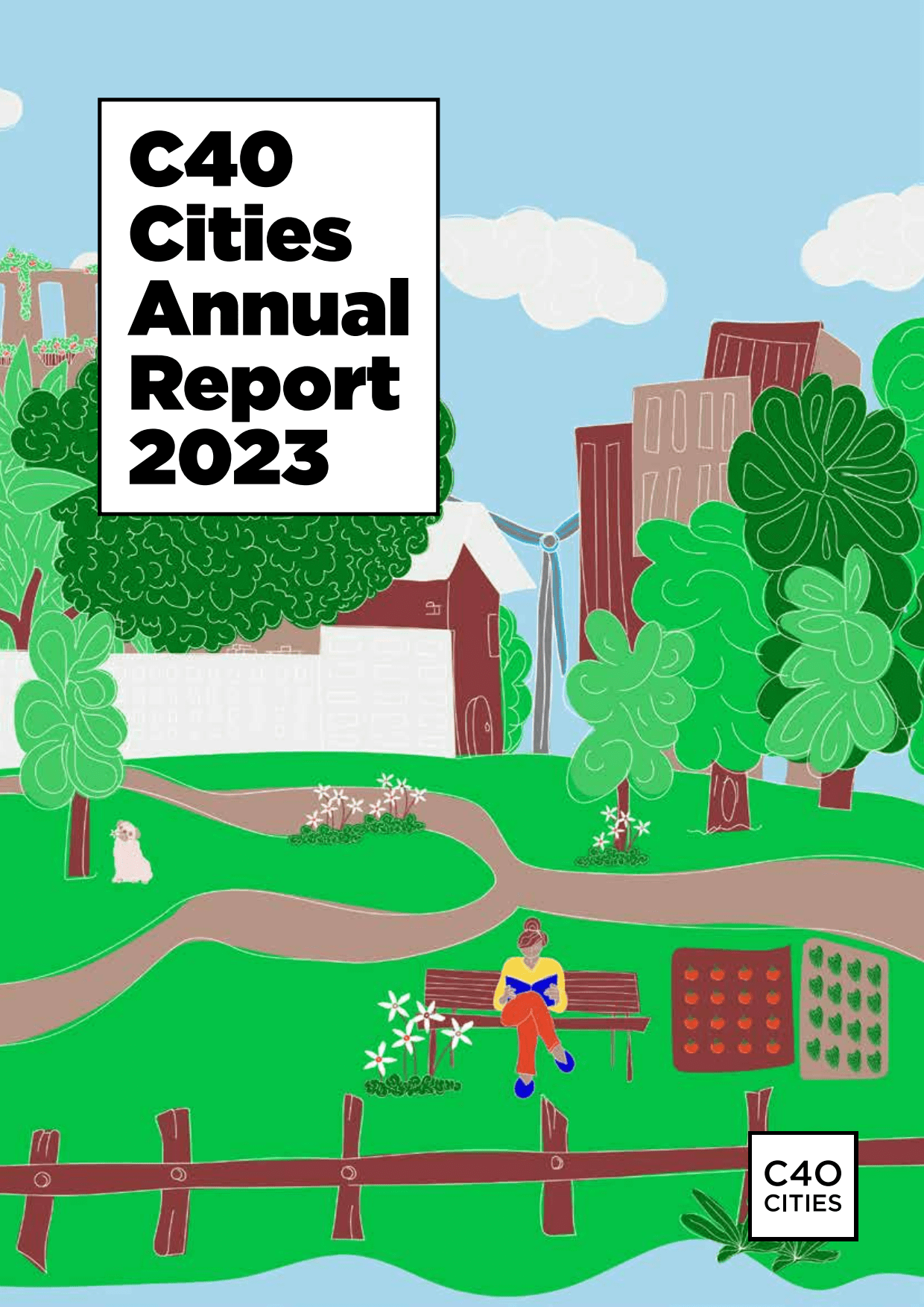AI-Generated Summary
The C40 Annual Report 2023 provides an in-depth overview of the C40 Cities organization, which is a global network comprising nearly 100 mayors from leading cities dedicated to combating climate change through urban initiatives. The report highlights significant achievements, challenges, and strategies aimed at addressing the climate crisis while promoting equity and resilience.
Context of the Report
In the context of increasing global temperatures and climate-related disasters that have marked recent years, C40 Cities focuses on empowering urban areas to lead the fight against climate change. In 2023, the organization centered its efforts on two main missions: phasing out fossil fuels to mitigate climate breakdown and addressing the impacts of climate change by enhancing urban resilience and equity. This report comes at a critical time, emphasizing the urgency for transformative action at the city level.
Key Findings and Strategic Missions
C40's two core missions are supported by four critical sub-missions, which include demonstrating that fossil gas is nearly as harmful as coal, establishing low or zero-emission transport zones, unlocking investments for urban climate projects, and creating 50 million good, green jobs by 2030. These priorities are instrumental in shaping C40's advocacy efforts and policy initiatives globally.
Major Initiatives and Achievements
Among the notable initiatives in 2023, the "Breathe Cities" program was launched to improve air quality in 11 cities, including London and Nairobi. Furthermore, C40 established two youth networks aimed at engaging young people in climate action, exemplified by the "Students Reinventing Cities" initiative. Urban climate action plans were adopted by cities such as Bogotá and Warsaw, aligning with the goals of the Paris Agreement.
Energy Transition and Building Decarbonization
Cities like Rio de Janeiro and Curitiba initiated renewable energy projects, including municipal power purchase agreements and solar farms. In a significant move, Boston issued an executive order to eliminate fossil fuels in new municipal buildings, while Beijing implemented green construction regulations. These actions underscore the commitment to sustainable housing and energy efficiency.
Inclusive Climate Action and Green Jobs Creation
C40 expanded its Inclusive Climate Action Programme, addressing structural inequalities while tackling climate challenges. This included support for informal waste workers in Accra and enhancing resilience for people with disabilities in Vancouver during heatwaves. The report also highlights that C40 cities collectively created over 14 million green jobs across various sectors such as waste management, energy, and transportation.
Governance and Leadership
C40 is co-chaired by Sadiq Khan, the Mayor of London, and Yvonne Aki-Sawyerr, the Mayor of Freetown. The organization is governed by a Steering Committee of mayors representing diverse regions and is supported by philanthropic funding from partners like Bloomberg Philanthropies. This governance structure facilitates effective decision-making and resource allocation.
Future Outlook
As C40's current business plan concludes, the organization aims to develop a new strategy for 2025–2030, focusing on halving emissions by 2030 and ensuring a just energy transition. Plans to scale up initiatives such as climate budgeting, urban nature accelerators, and renewable energy adoption are also in progress. This report underscores the pivotal role cities play in leading global efforts to mitigate climate change, fostering equity, resilience, and innovation in sustainable housing.

